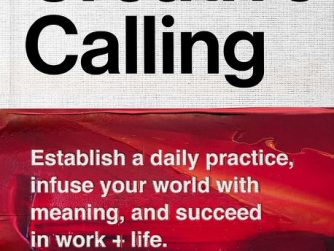Are we willing to trust a person with the Bible and the Spirit alone for his or her theology? That was a question I posed to a friend who also happens to be a theologian.‚ His response was that thought scares him to death, but it is something that must be done.
It is the Spirit that leads us to all truth, right?
MIROR Churches understand that theology is organic.‚ There is an air of contextualization around it.‚ Beliefs in one region of a country, nation or continent will not be the same as in others.
There is absolute Truth, and his name is Jesus.‚ In addition, there are some core beliefs, statements that Jesus and others explicitly made regarding core theology (think early creeds) that cannot be explained away.‚ Nevertheless, we live as broken images of God, and our theology is a reflection of that.
All Theology is Organic Theology
1.‚ Theology is cultural. Interpretation is cultural.‚ A person in Latin America may understand the woman at the well in John 4 as a victim.‚ In their culture, men issue the divorce; women can’t divorce their husbands.‚ Therefore, those in parts of Latin America read John 4 in a completely different context and understand that passage differently.‚ If we truly trust the Spirit to lead all people into truth, not just those who have been to seminary or understand the grammatical-historical hermeneutical process, then we have to allow for differences in our understanding in texts.‚ As a result, there will be differences in theology.
2.‚ Theology is experiential. Not only do we understand culturally, we interpret experientially.‚ The experiences we have had in life affect how we interpret what we see, hear, and read.‚ For instance, in watching a sit-com, research shows we misunderstand as much as 30% of the meaning within the show.‚ Our experiences determine, according to the research, how we interpret the meaning of the show.
Despite what we think, Certainty is based on emotion, not reason.
Dr. Robert A. Burton, associate chief of the Department of Neurosciences at UCSF, has written a book entitled, On Being Certain: Believing You Are Right Even When You’re Not.‚ In this book, he shows that the feeling of certainty we have when we know something comes from sources beyond our control and knowledge.‚ In fact, certainty is a mental sensation, rather than evidence of fact.‚ Because this feeling of knowing seems like a confirmation of knowledge, we tend to think of it as a product of reason.‚ But an increasing body of evidence suggests that feelings such as certainty stem from primitive areas of the brain and are independent of active, conscious reflection and reasoning.‚ The feeling of knowing happens to us; we cannot make it happen.
So how do we live in this tension of absolute truth versus organic theology?
1.‚ Trust the Spirit. If I may be so bold, this is the one thing we struggle with the most.‚ We find it hard to trust the Spirit to lead us into truth.
2.‚ Hold our theology loosely. There are specific commands that Jesus gave that we can hold on to very tightly.‚ We have, however, spent so much time and energy to systematize our beliefs that we have boxed God in.‚ We need to hold tightly to a few essentials and realize that we just may be wrong.
3.‚ Avoid the condemning tone and “slippery slope” images. I know very strong Bible-believing theologians who interpret scripture differently than I, and thus their theology is different.‚ I do not condemn them, as they have looked hard at the text and have come to different conclusions than I.‚ I do not call them liberal.‚ They do not embrace homosexuality or universalism. They just believe differently based on their interpretive lens.






New blog post: The MIROR: Organic Theology http://tinyurl.com/6hcg28